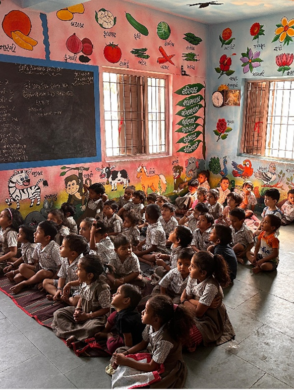Our Activities
Cities are complex systems. The components of urban systems, from food distribution networks and energy grids to transport and greenways, are interconnected and dynamic. Intervening to create change in any one of these components may impact others, creating systemic change. Designing solutions that take these interconnections into account is critical to sustainable development.
The five ICLEI pathways towards low emission, nature-based, equitable, resilient and circular development are designed to create systemic change. When these pathways guide local and regional development, urban systems becomes more sustainable. The pathways provide provide a framework for designing integrated solutions that balance the patterns of human life and the built and natural environments. They encourage holistic thinking. For instance, working together, the local and regional governments and global experts of ICLEI consider how nature-based development contributes to resilience, or how to bring equity into low emission development.
We design our work to integrate as many pathways as possible. Each individual pathway is multidimensional, incorporating numerous strategies for sustainable development. When more pathways are integrated into any given activity, such as a project, partnership or initiative, a greater degree of change can occur. Often, our activities are guided by a predominant pathway or set of pathways. In any given city or region, multiple activities may be implemented along each pathway.
This searchable digital collection of our activities worldwide includes technical resources, including digital platforms, methodologies and tools, as well as networks, projects, programs, partnerships, events and initiatives that guide action along the pathways, spark new partnerships and create city-to-city and city-to-region connections.
Each entry in this digital collection is marked with predominant pathways, keywords and related Sustainable Development Goals.
Rapid IUWM aims to build the capacity of urban local bodies to understand interlinkages between water, wastewater and storm water; and adopt an integrated urban water management planning and implementation approach through multi stakeholder involvement. Two local urban bodies in Rajasthan (Kishangargh and Ajmer) developed an IUWM based vision for their cities and developed an […]
The project ‘Urban-Rural Assembly’ (URA) aims to build a better understanding of the urban-rural constellation and interdependencies that are emerging along China’s vast urbanisation corridors, and which can no longer be described through traditional binaries of ‘urban’ and ‘rural’. The region Huangyan-Taizhou, part of the Chinese ‘prefectural-level city‘ Taizhou, will be examined as an exemplary […]
Urban Rural Assembly – URA
ICLEI is the Technical Support Group enlisted to assist 21 local Biodiversity Management Committees to produce their People’s Biodiversity Register, a repository of local knowledge on Biodiversity. Through a set of 31 pre-formulated formats, information is collected on various aspects of biodiversity relevant in the local context. This is supplemented through photo documentation and in […]
ICLEI is carrying out a baseline assessment of the ecosystems and the services they provide to the city of Gangtok. ICLEI will complete a review of the policy environment with regard to biodiversity conservation is and a natural asset map for the city, which will all help to set the baseline for the Local Biodiversity […]
Biodiversity Conservation and Natural Resource Management for Sustainable Development in Gangtok
The project promotes sustainable management of high range Himalayan ecosystems to secure conservation of globally significant wildlife, including endangered snow leopard and their habitats and ensures sustainable livelihoods for local community in the four high altitude landscapes in the Trans- and Greater Himalayan region. These actions are aimed at maintaining ecosystem values and ameliorating climate […]
Secure Himalaya_Himachal Pradesh
The Urban Nexus project started out as a bottom-up initiative operating primarily at the city level. GIZ and ICLEI provide customized technical assistance to cities depending on the thematic focus of the cities’ nexus pilot projects. However, national, regional and provincial-level legal, regulatory, and policy frameworks are crucial determinants for local decision-making with regard to […]
ICLEI’s main activities in the project include: Taking the lead in transferring and customizing NBS, Co-developing NBS replication roadmap for FE, Co-developing the Urban NBS Plan along with the funding and investment strategies for FE, Co-developing the NBS implementation plan and opportunity-based implementation in FE districts and Launching a CLEVER Exchange Programme by organizing webinars, […]
Local governments are leading the change to an integrated planning approach, in which protected areas are a fundamental component of both urban and rural landscapes. Innovative solutions at the local level are being applied to integrate local protected areas into municipal planning and territorial development strategies, as well as into local management systems. ICLEI is […]
Urban Natural Assets for Africa (UNA), implemented from 2014 to present, in eight cities and six countries, seeks to improve human well-being, contribute to poverty alleviation and build climate resilience through integrating nature-based solutions into land use planning. UNA has three flagship projects; Urban Natural Assets for Africa (UNA Africa), Urban Natural Assets for Africa: […]
UNA (Urban Natural Assets for Africa)
Through the LAB: Wetlands South Africa project, ICLEI aimed to protect priority natural wetland resources located in South African municipalities, thus enabling the supply of ecosystem services and promoting resilient communities under a changing climate. The project raised awareness of the value of wetlands, mainstreamed wetlands into land-use planning and initiated pilot wetland projects. The […]

















